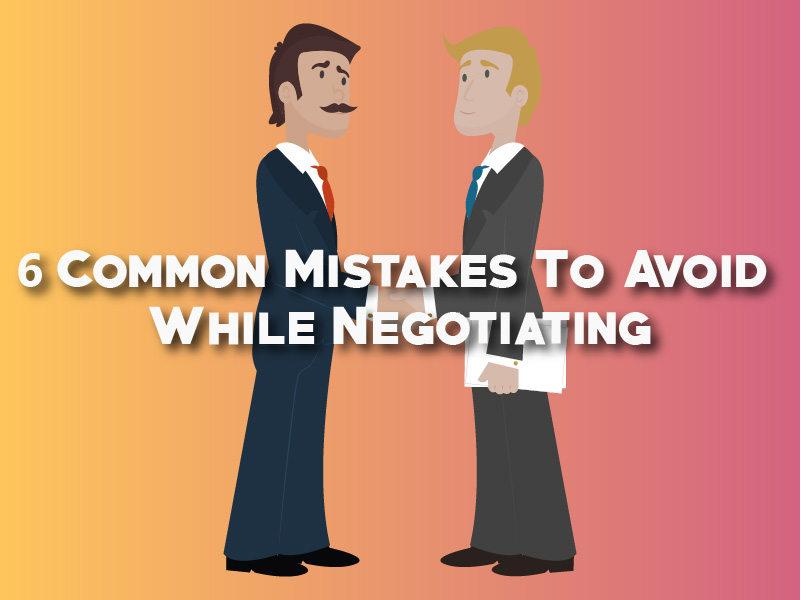We often ignore the risks associated with poor preparation when if comes to negotiation. The truth is when you fail to plan, you plan to fail. Below are six common mistakes to avoid while Negotiating.
1. CONFIRMATORY BIAS
This is the most common among mistakes to avoid while negotiating. We take a stand and just ignore all other information that does not fit that stand or point of view. We must not forget that our stand or point of view if formed by our past experiences and are not always correct. Do not rule out important information just because it does not fit with your existing points of view and beliefs.
I also strong recommend our guide on successful negotiation to build your negotiation skills
2. AVAILABILITY BIAS
It is very easy to find information that is widely available. So make a real effort to uncover information that is obscure and not so easy to obtain.
Deciding to continue smoking because you know a smoker who lived to be 100 would be a good example of Availability Bias. In this scenario, the story you can recall plays too big a role in your decision to continue smoking. A review of medical statistics on smokers’ health ought to be a far weightier factor in the decision process.
If you are a sales person I would suggest visiting our complete sales guide
3. TRUSTING SECONDARY INFORMATION
It has become more important in this digital age, fake news are rampant and unreliable sources are ever increasing. You must seek out reliable sources of primary information. The information where it orginates. For e.g during negotiation if you are quoting a price by one of the competitors, refer the website of the company. Do not rely on other websites which quote the price. By all means read industry report analyses, reports of management projections, and corporate annual reports, but consider that these reports may sometimes be inaccurate or biased.
4. INFORMATION ASYMMETRY
Do you really know as much as you think? To be on the safer side, you should assume by default that you know less than the other party. Always seek evidence to reinforce what you already know. Listen to understand and listen carefully before you speak. You can also have a look at our Active Listening Skills post
5. OVERCONFIDENCE
If you underestimate your counterpart you will neglect to plan well. If you already think you know how a negotiation will end, you may exclude new sources of information and overlook creative solutions. This critical among common mistakes to avoid while negotiating.
6. UNDERESTIMATING RESOURCES
During any negotiation you must be able to present supporting facts and evidences. Furthermore anticipate how the other side will respond to your arguments, and prepare counterarguments. Do not underestimate how long it can take to assemble such information, especially if you require input from experts and colleagues.
Please do share the post if you have liked it. Post your inputs in the comment sections for further discussion.








